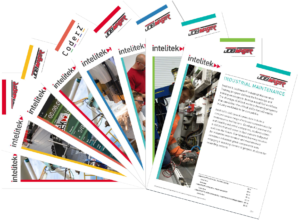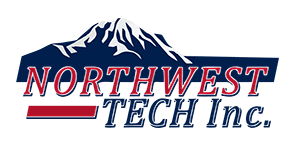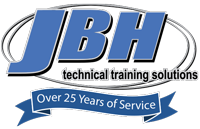From the Yaskawa Blog
The shocking truth for many business leaders today is that for robotic automation to reach its full potential it requires a skilled, human component. While a host of convergent technologies and more capable yet affordable robots are now efficiently accomplishing dull, dirty and dangerous tasks with greater ease, efficiency and safety, harnessing the perceived productivity gains of the future will only come to fruition if people have the necessary skill sets to work alongside robots and advanced machinery.
Thanks to Industry 4.0 and the rapid pace of technological change, job responsibilities are evolving, and the primary capabilities needed to fulfill industrial tasks are shifting as a result. Moreover, as advancements in automation and digitization permeate the industrial landscape, there will continue to be a dichotomy between existing worker skill sets and the knowledge needed to operate robotic systems and other advanced technologies. So much so, that 62 percent of executives from diverse industries confirm that retraining employees to work with robots is a top priority over the next three years. As a result, many businesses are budgeting for upskilling their current employees, while creating corporate roadmaps to prepare today’s students for the workforce of the future.
Upskilling and Micro Credentialing
The majority of manufacturers understand that insufficient training – where robotic integration is concerned – can paralyze operations, hindering productivity. To push forward into Manufacturing 5.0, where the human touch and robotic technology work in harmony to function at peak performance, there must be a dedicated effort on multiple fronts to enhance current career pathways and to provide adequate industrial education that enables the next-generation workforce.
Despite a greater focus on STEM (Science, Technology, Engineering and Math) and workforce development over the last few years, a greater adoption for the “we need to be ready now” mentality still needs happen. Instead of manufacturers having to play “catch-up” once a robot is installed on the factory floor, a concentrated effort to create a talent pipeline more in-line with unique production initiatives must be made. This will take dedicated involvement from industry leaders to define and promote the skills required for future success, and it will also require a strong commitment from educational institutions to create educational roadmaps for students and provide the necessary training tools to learn the relevant skills.
While high-level certification training methods, like hands-on robot classes at Yaskawa Academy, are still very much needed to upskill workers for robotic integration and operation, a growing focus is being placed on the concept of micro credentialing. A deviation from traditional robot training, this “plug and play” approach to education combines Industry 4.0 technologies and processes with usable soft skills, breaking normal skill sets into smaller more usable pieces. Often less time-consuming, this form of blended learning offers an eclectic mix of hands-on, online and classroom instruction, where upon completion, students earn “digital badges” for each subset of knowledge learned.
.png.aspx)
Image: Education Week
A New Manufacturing Ecosystem
In essence, this combination of technology and training is creating a new manufacturing ecosystem, where the best possible educational experience for students can take place. Moreover, leading automation companies are changing how manufacturing needs are being met, creating strategic partnerships and encouraging other businesses to follow suit.
For example, instead of a reactive approach to training, Yaskawa Motoman experts are collaborating with other leading automation and technology companies (i.e., Cognex, Festo, Miller®, etc.) to create new educational distribution models, specific skill-based training blueprints and more. These valuable resources aid schools and prompt educational leaders to answer tough questions like, “Do you have all of the right tools and technology on site?” and “Do you have a roadmap on how to blend skills to train students?”
These collaborative partnerships not only help schools create learning roadmaps, but also, they foster an atmosphere for innovation, supporting new product growth for workforce-based Industry 4.0 systems. Yaskawa’s recent partnership and Industry 4.0 collaboration with Intelitek® – a world-leading STEM and education manufacturing developer, producer and supplier of workforce training solutions – has expanded our combined educational robotics products to over 19 configurations featuring Yaskawa robots for material handling welding and collaborative applications. Hundreds of curriculum models and training certifications have also come to fruition, bolstering micro credentialing efforts.
Driving Change Across the Board
While across the board change that permeates the entire manufacturing sector will be hard, there is a general acceptance that it is vital to reach future industry goals and projected productivity gains. A key catalyst for driving this change is for manufacturers to actively collaborate with the education community and workforce development partners at the local and state level, ensuring that there is a cohesive effort to align education and industry. Ultimately, as this movement takes root, emergent customer demands will be met head-on with greater ease and efficiency.
Events like the upcoming ACTE CareerTech Vision Expo in Anaheim, California (December 4-6, 2019) continue to fuel optimism for the future of the robotics industry and workforce development. Stop by booth #807 to learn more about Yaskawa’s partnership with Intelitek and the educational tools and resources available to best prepare students for the manufacturing careers of the future.Bob Graff is a Senior Sales Manager, Education at Yaskawa America Inc. – Motoman Robotics Division
























